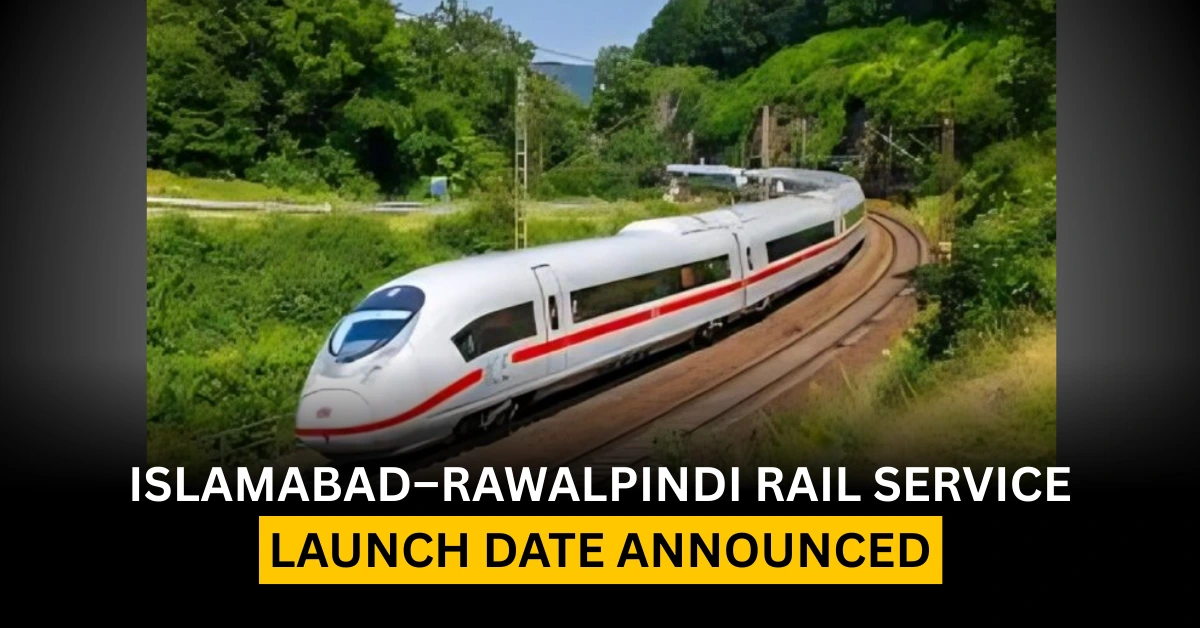The long-awaited Islamabad–Rawalpindi Rail Service is finally set to begin operations, offering commuters a faster and more reliable alternative to road travel. The government has officially confirmed the launch date: March 23, marking a new milestone in Pakistan’s public transportation system.
The service will initially run between Margalla Railway Station in Islamabad and Saddar Railway Station in Rawalpindi. Designed as a high-speed rail link, the journey will take only 20 minutes travel, cutting the usual commute time of 45–60 minutes by more than half.
Project Oversight and Leadership
The initiative is a joint effort of Pakistan Railways and the Capital Development Authority (CDA), backed by the Federal Government. A recent high-level meeting finalized the operational plan, chaired by Interior Minister Mohsin Naqvi and attended by Hanif Abbasi and Talal Chaudhry, along with senior officials from multiple departments.
| Detail | Information |
|---|---|
| Launch Date | March 23, 2026 |
| Route | Margalla Station (Islamabad) – Saddar Station (Rawalpindi) |
| Travel Time | ~20 minutes |
| Phase One | Using existing railway tracks |
| Organizers | Capital Development Authority (CDA) & Pakistan Railways |
This collaboration ensures smooth coordination for operations, security, and future expansions of the rail network.
Also Read:
Used Car Imports in Pakistan: 40% Duty Imposed, Timeline Explained
Benefits of the Rail Service
The Islamabad–Rawalpindi Rail Service aims to:
- Reduce travel time between the two cities to just 20 minutes.
- Ease traffic congestion on highways and busy city roads.
- Provide a cost-effective commuting solution for daily passengers.
- Support a more sustainable transport system by utilizing the existing railway track infrastructure.
Why It Matters
By investing in modern mobility solutions like this rail service, the government hopes to create a convenient, eco-friendly, and affordable travel option. With reduced road pressure, fewer delays, and a smoother passenger experience, the Islamabad–Rawalpindi Rail Service represents a significant step toward better connectivity and urban development in Pakistan.



Join The Discussion